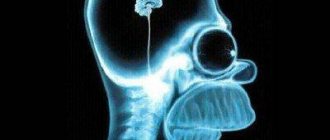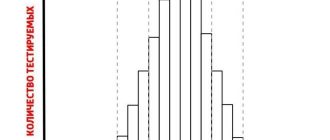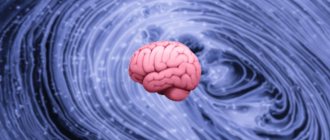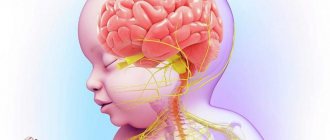In psychology, there are many methods that allow you to determine individual characteristics of perception, memory, attention, imagination, emotional states, etc. But perhaps the most famous are intelligence tests. They make it possible to assess the level of mental abilities of an individual. Despite the fact that these tests cannot be called universal, they are popular.
What are intelligence tests
Interest in the ability to evaluate one's mental abilities and compare them with the talents of other people has existed for a long time. But the study of intelligence began seriously only at the beginning of the 20th century in connection with the development of practical psychology. On the other hand, the need to diagnose abilities for mental activity is associated with the development of society, with the complication of production and, accordingly, with the need to improve the education system. It is this area that has long stimulated the development of intelligence tests. Methods aimed at adults appeared only in the 30-40s.
The very first intelligence test was compiled by Alfred Binet commissioned by the French Ministry of Education to diagnose the mental development of children. Since then, the tests have been supplemented, revised many times, tasks have been changed, and new versions have appeared, including for adults. But their form has not changed.
The test consists of several subtests - blocks of tasks. Their number varies and depends on age:
- In the Binet test, 4-year-old children had to complete 4 exercises, 6-year-olds – 6.
- A modern test for adults, developed by Russian psychologist V.N. Buzin, even in a short version contains 50 tasks.
Subtests are compiled based on serious research of large age groups and include exercises that 80-90% of subjects were able to complete. The content of the tasks in different tests is different, so that it is impossible to prepare for them in advance. In some ways they resemble school tests. And just like control tests, they contain questions for verification. But intelligence tests test a set of personality traits related to efficiency and level of thinking. For example, using the full Wechsler test, you can assess the following abilities:
- awareness (30 questions from different areas of life and science);
- ability to make inferences and correct conclusions (14 questions);
- understanding the meaning of mathematical problems, the ability to operate with numbers and do arithmetic calculations (16 tasks);
- logic: the ability to analyze, compare concepts, find similarities and differences between them (16 tasks);
- the volume and meaningfulness of the vocabulary, the ability to understand the meaning of abstract categories (you need to define 40 concepts);
- level of attention, short-term and operational memory, which requires reproducing a number of numbers and symbols from memory;
- non-verbal intelligence: visual-effective and figurative thinking, memory, perceptual abilities (ability to perceive pictures, objects, etc.), analytical-synthetic and spatial abilities are diagnosed;
- ability to encode information.
Currently, there are many different approaches to diagnosing the level of intelligence, but most often, repeatedly revised and improved Binet tests are used, the purpose of which is to determine the IQ.
Gardner's Types of Intelligence Test
Questionnaire on types of intelligence
(G. Gardner)
A questionnaire on types of intelligence allows you to identify your inclination towards a particular type of activity, which can help you in choosing a future profession. The questionnaire is based on the views about the structure of intelligence outlined in the theory of Howard Gardner.
One of the specialists in the study of intelligence is the American psychologist Howard Gardner, who proposed the “theory of multiple intelligences”, in which he expressed the opinion that a person has at least seven different forms of intelligence.
Gardner defines intelligence as a person's ability to solve problems or create products of value within a given or multiple cultures, and to identify and pose new problems as a foundation for acquiring new knowledge.
He insists that the ability of individuals to acquire and expand knowledge reflects the priorities and opportunities that society provides in the field of culture. In his construction, intelligence is seen as a flexible, culture-dependent construct.
The theory of multiple intelligences is based on two important statements, according to Gardner. First, all people have all types of intelligence. Secondly, just as we all have different appearances, unique characteristics of temperament and personality, we also have different intellectual profiles.
Howard Gardner identified the following types of intelligence:
1. Linguistic Intelligence: Represents the ability to use language, your native language, and possibly other languages, to express what is on your mind and to understand other people. It is most developed among poets, but is also necessary for any writer, speaker, speaker, lawyer, or person for whom language is an important basis for activity.
2. Logical-mathematical intelligence: represents counting and working with numbers, mastery of mathematical concepts. People with this type of intelligence like to solve logical problems and puzzles, play chess, think on a more abstract level compared to their peers, and understand cause-and-effect relationships. This type of intelligence develops as a person grows older and with his abilities in mathematics.
3. Visuospatial intelligence: Visuospatial intelligence refers to the ability to represent the spatial world in one's mind. It is similar to the way a sailor or pilot navigates the spatial world, or the way a chess player or sculptor imagines a more limited spatial world. Spatial intelligence can be used in the arts and sciences. If you have spatial intelligence and are creatively oriented, you are more likely to become an artist or sculptor or architect than, say, a musician or writer. Likewise, for some sciences, like anatomy and topology, spatial intelligence is of particular importance.
4. Motor Intelligence: Motor intelligence is the ability to use your body or body parts - arm, fingers, hands - to solve a problem, do something, or produce something. The most obvious examples are people involved in athletics or performing arts - dancers, actors, mimes.
5. Musical Intelligence: Musical intelligence is the ability to think about music, to be able to hear musical images, recognize them, remember them and possibly manipulate them. People with strong musical intelligence not only remember music easily, but they also can’t get it out of their heads—it’s everywhere.
6. Interpersonal Intelligence: Interpersonal intelligence is about understanding and communicating with other people. We all need this quality, but it becomes very important if you are a teacher, doctor, salesperson or politician. Anyone who constantly interacts with other people must be a master of interpersonal relationships.
7. Intrapersonal Intelligence: Demonstrates a sense of independence/willpower; really understands its advantages and disadvantages; performs tasks well when nothing interferes with him; knows how to manage himself; prefers to work alone; accurately describes his feelings; learns from one's own mistakes; has a developed sense of self-esteem. This type of intelligence allows you to become aware of yourself, step back and look at yourself from the outside as an external observer. Psychologists, teachers and educators achieve the highest qualifications in this type of intelligence.
In 1997, G. Gardner identified naturalistic intelligence (naturalist intelligence): naturalistic intelligence refers to a person’s ability to navigate the environment of living beings (plants, animals), as well as to have sensitivity to other manifestations of the natural world (clouds, rock configurations). This ability was of great value in our evolutionary past as hunter-gatherers and farmers. It continues to play a central role in professions such as botanist and chef. The special ability of recognition that is valued in some disciplines may also rely on the intelligence of the natural scientist.
Gardner is now considering the possibility of a ninth ability, existential intelligence.
covering human inclinations to consider fundamental questions of existence, eternity, life and death.
The theory of multiple intelligences, when used correctly, can allow each person to more fully realize their potential in their professional activities and hobbies.
Instructions:
Mark the numbers of the statements that correspond to you.
Questionnaire text:
- I skillfully work with objects.
- I have a good sense of direction.
- I have a natural ability to resolve disputes between friends.
- I can easily remember the words of songs.
- I can explain topics that are difficult to explain to others.
- I always do everything step by step.
- I know myself well and always understand why I act this way and not otherwise.
- I enjoy community service and community events.
- I learn well by listening to others.
- When I listen to music, my mood changes.
- I like riddles, crosswords, logic problems.
- For my learning, visual presentation of the material is very important: tables, graphs, diagrams.
- I am sensitive to the mood and experiences of others.
- I learn better when I have to do things on my own.
- Before I learn something, I need to understand that there is something useful in it.
- I love solitude and silence while working and thinking.
- In complex pieces of music, I can identify individual musical instruments by ear.
- I can visually easily imagine scenes that I remember or that I have imagined.
- I have a rich vocabulary.
- I like to take notes, written sketches.
- I have a good sense of balance and love movement.
- I can see patterns between concepts and phenomena.
- In a team, I collaborate with others and listen to their ideas.
- I am observant and often see things that others do not see.
- I get angry easily.
- I like to work and study separately from others.
- I love composing music.
- I can manipulate numbers and solve complex mathematical problems.
Processing the results:
Match your answers with the survey key
| Types of intelligence | Questionnaire items | total amount |
| Linguistic | 5, 9, 19, 20 | |
| Mathematical-logical | 6, 11, 22, 28 | |
| Visual-spatial | 2, 12, 18,24 | |
| Musical | 4, 10, 17, 27 | |
| Interpersonal | 3, 8, 13, 23 | |
| Intrapersonal | 7, 15, 16, 26 | |
| Kinesthetic | 1, 14, 21, 25 |
Different types of intelligence:
| Types intelligence | Brief characteristic types |
| Linguistic | They love to write, read and listen. They like to tell stories. They remember dates, names and other information well. They have good pronunciation, a rich vocabulary, love to solve crosswords and play “words”. |
| Mathematical-logical | They quickly solve arithmetically problems, love to analyze data, and make forecasts. They prefer to play chess and “strategic” games. Causes and effects are quickly recognized. |
| Intrapersonal | They prefer their inner world. Show a sense of independence. They prefer to be alone, doing their favorite things or work. |
| Visual-spatial | Thinks in images and “pictures”. Loves to draw, paint, sculpt. Reads maps and diagrams well. Likes to watch everything in motion, as well as look at slides and photographs. |
| Musical | Sensitive to a variety of sounds in their environment. They love to play musical instruments and remember melodies well. They love to do something to the accompaniment of music. They have a good sense of rhythm. |
| Kinesthetic | They learn best by moving, touching and manipulating objects. They fidget, stand up, spin around when sitting. When talking to people they like to touch them. Skillful handicraftsmen. |
| Interpersonal | They always love to be around people. They have many friends. Good organizers, and sometimes manipulators. People learn best through engagement with others. They act as mediators during discussions and disputes. As a rule, they understand other people's feelings well. |
Instructions:
Mark the numbers of statements that correspond to you
Text of the questionnaire “Your type of intelligence”:
- I skillfully work with objects.
- I have a good sense of direction.
- I have a natural ability to resolve disputes between friends.
- I can easily remember the words of songs.
- I can explain topics that are difficult to explain to others.
- I always do everything step by step.
- I know myself well and always understand why I act this way and not otherwise.
- I enjoy community service and community events.
- I learn well by listening to others.
- When I listen to music, my mood changes.
- I like riddles, crosswords, logic problems.
- For my learning, visual presentation of the material is very important: tables, graphs, diagrams.
- I am sensitive to the mood and experiences of others.
- I learn better when I have to do things on my own.
- Before I learn something, I need to understand that there is something useful in it.
- I love solitude and silence while working and thinking.
- In complex pieces of music, I can identify individual musical instruments by ear.
- I can visually easily imagine scenes that I remember or that I have imagined.
- I have a rich vocabulary.
- I like to take notes, written sketches.
- I have a good sense of balance and love movement.
- I can see patterns between concepts and phenomena.
- In a team, I collaborate with others and listen to their ideas.
- I am observant and often see things that others do not see.
- I get angry easily.
- I like to work and study separately from others.
- I love composing music.
- I can manipulate numbers and solve complex mathematical problems.
Processing the results:
Match your answers with the survey key
| Types of intelligence | Questionnaire items | total amount |
| Linguistic | 5, 9, 19, 20 | |
| Mathematical-logical | 6, 11, 22, 28 | |
| Visual-spatial | 2, 12, 18,24 | |
| Musical | 4, 10, 17, 27 | |
| Interpersonal | 3, 8, 13, 23 | |
| Intrapersonal | 7, 15, 16, 26 | |
| Kinesthetic | 1, 14, 21, 25 |
How is IQ determined?
Intelligence quotient or IQ is the ratio of “mental age” to calendar age, multiplied by 100 (*100). “Mental age” is determined based on the completion of test tasks that are designed for a specific age group. If we are talking about adults, then the tests for them are designed taking into account tasks of different levels of complexity. In addition, the number of tasks in methods for older people significantly exceeds the capabilities of people of average intelligence.
Thus, "mental age":
- may correspond to the calendar; if the subject performs tasks corresponding to the age norm, then the IQ will be about 100 points - from 84 to 116;
- may exceed the calendar one, then the coefficient will be high from 116 to 200, which indicates a different degree of mental giftedness;
- may be less than the calendar level, in this case the IQ is below 84 points, and this is already an indicator of mental retardation.
Most people (68% of adults) have an average IQ between 84 and 116; 16% are among those with below average intelligence, up to almost no intelligence. And 16% are mentally gifted intellectuals.
Intelligence is plastic, mental abilities can be developed, unless, of course, we are talking about an extreme degree of mental retardation (severe forms of mental retardation, imbecility and idiocy), when IQ is below 50%. Abilities within the framework of average indicators are especially amenable to development.










